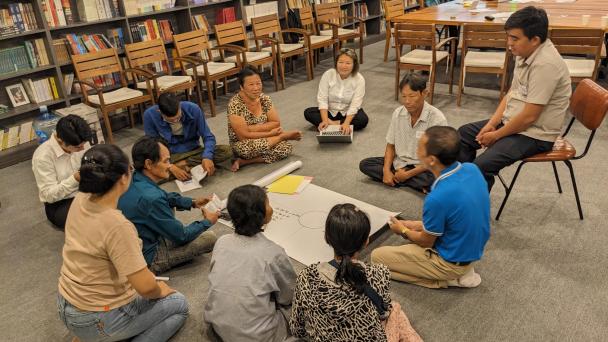Co-constructing climate-health knowledge with informal outdoor workers in urban Vietnam

The Survey Data Collection Methods Collaboration, also known as Survey Futures, is pleased to announce £1.28 million funding for nine new research projects, designed to support a step change in survey research.
The funding will go to projects that will help to build evidence in different data collection techniques and innovative approaches to ensure survey methods remain fit-for-purpose.
Survey Futures is led by researchers from the Universities of Essex and Southampton and is funded by the Economic and Social Research Council (UKRI-ESRC) for a three-year period, which began in July 2023. The main objective of this initiative is to ensure that it will remain possible in the UK to carry out high-quality social surveys of the kinds required by the public and academic sectors to monitor and understand society, and to provide a solid base for policy.
The nine new research projects will explore:
Professor Peter Lynn, Principal Investigator – Survey Futures, says, “This set of nine research projects represent excellent value for money and support the overall objectives of Survey Futures. These new projects should allow Survey Futures as a whole to provide a comprehensive view of current best survey methods in this area, so that surveys can continue to deliver high quality research to inform policy. This supports the UKRI’s strategic priority themes of creating opportunities and improving outcomes in communities across the country and securing better health, ageing and wellbeing for everyone.”
For more information, visit surveyfutures.net
Background information:
Receive a regular update, sent directly to your inbox, with a summary of our current events, research, blogs and comment.
Subscribe